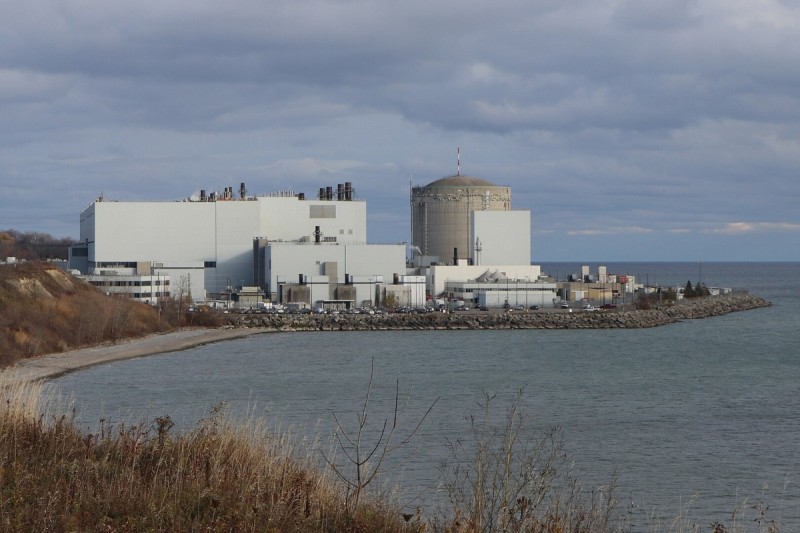Many climate policy authorities are dying to share the good news. On social media, they post ski slope graphs depicting the plunging price of renewables relative to fossil fuel energy sources — a rare feel-good story amidst the climate crisis. They promise their social media followers that wind and solar-generated renewable energy generation, long nurtured as infant industries, have developed the economies of scale and efficiency that they have prophesized decades ago to claw back prices and out-compete the fossil economy. The price is finally right for the energy transition that will solve climate change.
This market praise may be premature. Brett Christophers’ latest book The Price is Wrong: Why Capitalism Won’t Save the Planet, makes the simple observation that investment decisions are driven by expected profit, not price. The latter is nice, but it’s ultimately not what will deliver the energy transition or get a bank to invest in a private renewable energy project. Christopher’s analysis ultimately complements calls from across the left: that public ownership, not profits, ought to guide the energy transition.
While the cost of renewable energy projects plummet, their profitability is uninspiring with returns generating often no more than 5-8 per cent on investment, Christophers writes. That’s not exactly a thrilling proposition for energy financiers used to far higher returns — especially when considering Canada’s oil and gas sector enjoyed a profit margin of 17.6 per cent in 2023 through the most recent seller’s inflation shock.
Oil titans, often hoped to become clean energy providers, typically only go ahead with fossil fuel projects when they can expect a 15 per cent return in profitability. It should be no great mystery why they thumb their noses at wind turbines and solar panels: cheap renewable projects are bad bets for shareholders who are used to the tidy, reliable returns of fossil-fuel capitalism.
Christophers provides a telling anecdote: a 2015 shareholders meeting was held where Rex Tillerson, the former ExxonMobil CEO and Trump Secretary of State, shot down a Catholic priest requesting the company shift away from dirty fuels. “We choose not to lose money on purpose,” Tillerson said to rapt applause.
Christophers’ book purposefully narrows itself to the political economy of renewable energy and, despite clear sympathies, he does not treat any policy solution as a foregone conclusion. The subject matter is dense, but Christophers also assumes an unfamiliar, albeit committed, reader. He offers little insight on other market-driven initiatives like Carbon Capture, Utilisation and Storage, which is endlessly hawked to Canadian governments despite the technology’s underwhelming performance in the few instances of actual implementation.
Christophers argues against the insights of many climate policy experts who say that the principal obstacles facing renewables development are simply obstinate NIMBYism, aging grid systems built for fossil fuels, or regulatory bottlenecks. Instead, he argues that the hurdle is “bankability.” Competitive energy markets depress profits, and wholesale market prices are notoriously hard to predict. Government intervention in the energy market, “is often as much about making profit visible as about making it viable,” to surmount these challenges, he writes.
Of course, renewable energy developers have gone forward to build new projects, though Christophers is quick to point out that these gains have fallen short as the level of fossil fuel output has consistently increased. Christophers argues that what does get built is the result of a suite of state supports for the private sector, whether explicit (subsidies) or implicit (infrastructure). In his view, renewables are “hooked” on government support to manage their unpredictability and secure financing amid the volatility. These supports have often come in the form of “feed-in-tariffs” commonly used in Europe that offer long-term contracts for renewables, or tax credits as commonly deployed in the United States.
As demonstrated by its successes around the world, renewable energy requires substantial government involvement to be rolled out and survive. When government supports are removed, the collapse of onshore wind development in the UK in 2018 offers a stock lesson of what happens. Christophers is clear: renewable energy developers must do everything in their power not to sell at the market price to secure financing.
These examples lend to Christophers’ use of the concept of “fictitious commodities,” coined by economic historian Karl Polanyi, to describe electricity. Polanyi argued that the term could be applied to land, labour, and money because of their treatment as commodities, despite not being produced as them. This helps to conceptualize why newly created markets inevitably fall sick and invite governments to endlessly tinker with the symptoms but not the ailment.
Christophers offers important reading for those who understand the essential link between decarbonization, decommodification, and democratization. Instead of praising the falling costs of renewables, progressives should argue for the decommodification of energy via public ownership. Reversing the botched neoliberal experiment of energy privatization would create a fairer, more democratic and accountable energy system.
His analysis strengthens arguments for the public ownership of energy, including its generation and transmission. For more detailed policy proposals, Canadians can take inspiration from pieces by organizations such as the Climate and Community Project in the US and Common Wealth in the UK to create public energy champions. Canadians could learn from these initiatives of what is possible to coordinate a rapid rollout of clean power and wind down dirty fuels, through direct investment and full public ownership of assets such as generating infrastructure and transmission capacity.
These are much needed interventions for Canadians to learn from as provincial governments continue to vaunt the private sector and hail private sector-driven ‘small modular nuclear reactor’ (SMR) projects as the future. Putting aside their reliance on extractive industries, longer time horizons, and high capital costs, SMRs cannot be left to the private sector, given the eventual bail out that would be expected by governments to complete their deployment. We should take note of arguments for public ownership and recognize their broad benefits toward achieving the energy transition.
If nuclear power is to be a part of the answer to our energy woes, Canadians should look to their own history of crown corporations like Atomic Energy of Canada Limited, before it was unwisely sold off to scandal prone SNC-Lavalin. Before its demise thanks to Harper Government cuts, the AECL built nuclear energy in Canada, and marketed and built CANDU reactor technology around the world. It was a publicly-owned, Canadian crown corporation that led this energy revolution at great cost, but so goes the price of nuclear technology. The private sector nuclear industry has since been unable to replicate those advancements made under public ownership.
Canadian governments could take advantage of their access to cheaper borrowing and patient capital to bring power generation back into the democratic control. Public ownership of generation and transmission would accelerate deployment of low carbon energy sources according to social and ecological need, not private profit.
For anyone interested in those goals, Christophers offers a detailed survey of the thickets of subsidies and regulations attempting to rectify the failures of private energy markets. It is well-taken analysis for demolishing the well-worn myth that the price is everything. The market has failed to displace fossil fuels at the pace required to limit the climate crisis. We cannot afford that price.





